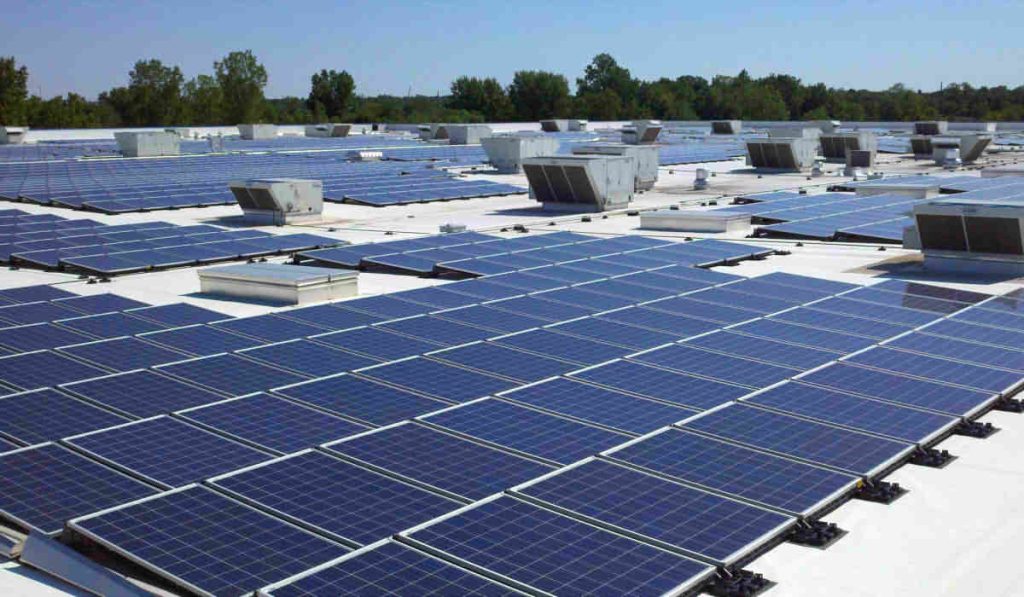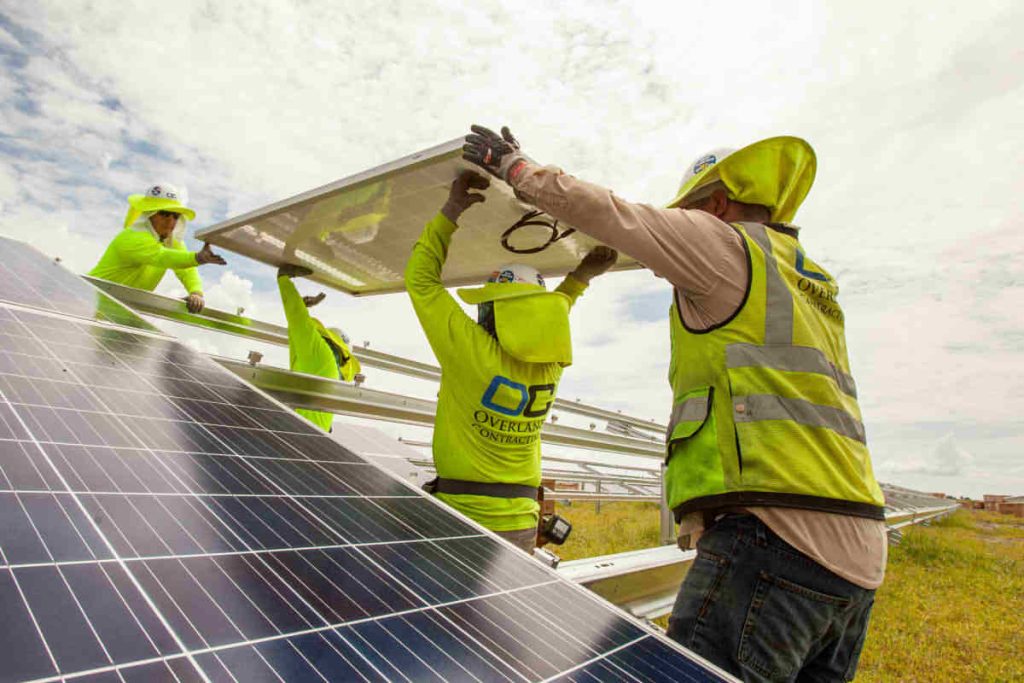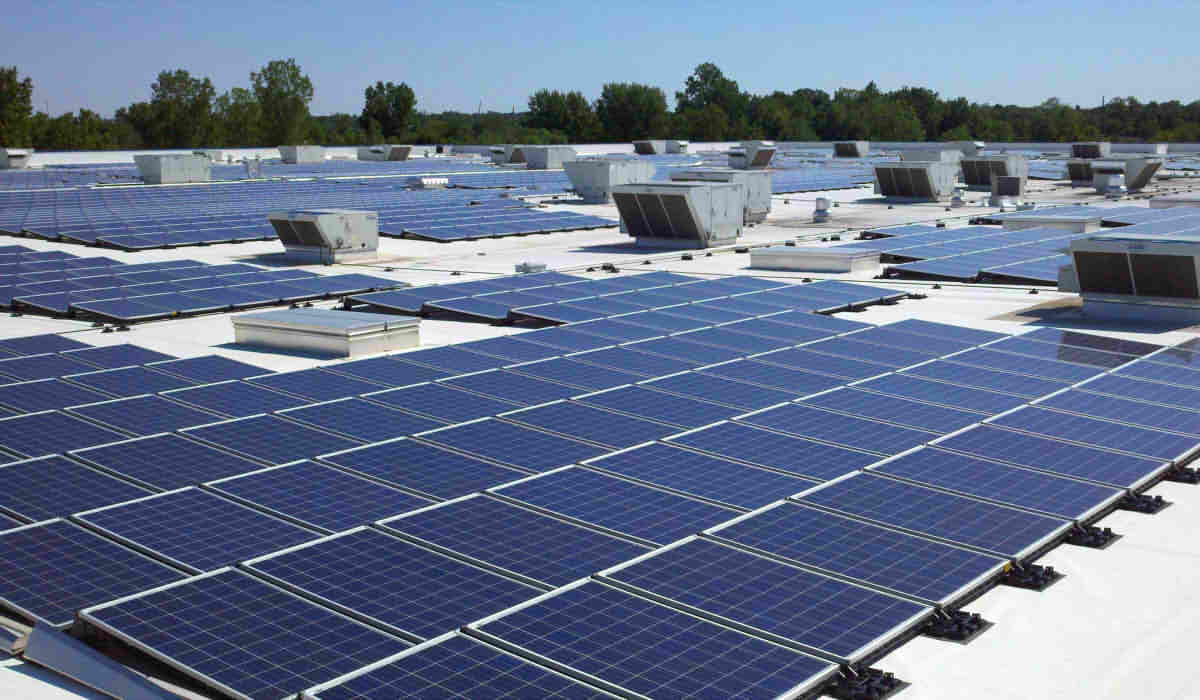According to the World Energy Investment Report 2023 published by the International Energy Agency (AIE), global investment in solar energy is set to surpass that of oil for the first time this year. This milestone marks a significant step towards a cleaner and more sustainable energy transition, driven by the accelerated growth of renewable energy around the world.

The need to address the climate crisis and reduce dependence on fossil fuels has led to rapid growth in the adoption of energy sources. renewable energy all over the world. Solar energy, in particular, has emerged as one of the most promising solutions due to its abundance, availability and environmental benefits. With the exponential growth of investment in solar energy, This year it is expected to exceed investment in oil for the first time, according to the IEA report.
Global Energy Investment: A Shift Towards Sustainable
The IEA report predicts that global energy investment will reach 2,8 billions of dollars in 2023, with more than half destined for clean energy. Investment in renewable energy and electric vehicles is expected to increase by 24% from 2021, surpassing the 1,7 billions of dollars. Secondly, investment in fossil fuels is estimated at around 1,1 billions of dollars, an increase of 15% in the same period.
The Unstoppable Rise of Solar Energy
Investing in solar energy (photovoltaic panels mainly) is located at the center of this energetic change. According to IEA projections, investment in solar energy will reach 380.000 million dollars this year, slightly exceeding the 370.000 millions of dollars allocated to oil exploration and extraction. This figure marks a turning point in the global energy balance, as solar energy becomes a priority in terms of investment.

The Executive Director of the IEA, Fatih Birol, stated that clean energies are evolving rapidly, faster than many people think. This is evident in investment trends. For every dollar invested in fossil fuels, they spend 1,7 dollars in clean energy. Five years ago, This ratio was one to one..
Energy Transition and Associated Risks
Although investment in clean energy is increasing, It is important to take into account the challenges that still persist. Despite the fact that developed countries and China lead investment in clean energy, there is a considerable gap in other parts of the world. If an adequate transition towards clean energy is not achieved throughout the planet, there could be a new global energy gap. To avoid this, It is crucial that developing countries also increase their investment in renewable energy.
The Importance of Accelerating the Transition to Clean Energy
The IEA emphasizes that, although investment in fossil fuels continues to increase due to high fuel prices, It is crucial to accelerate the transition to clean energy. The report highlights that current spending on fossil fuels is more than double the level needed to achieve net zero emissions in 2050. To avoid future climate crises and ensure a sustainable future, It is necessary to redouble efforts to promote investment in clean energy globally.
Economic and Environmental Benefits of Solar Energy

The expansion of investment in solar energy, as panels and photovoltaic solar cables, not only drives the energy transition, but also entails a series of economic and environmental benefits that contribute to sustainable development.. Next, Some of the most notable benefits are detailed.
Long-term cost reduction
Solar energy is based on a free and abundant energy source, Sun. As solar technology has advanced, Installation and maintenance costs for solar systems have decreased significantly. This allows users to generate their own electricity at a lower cost over time, which translates into savings on energy bills.
Employment generation
The growing solar industry has created a wide range of job opportunities in areas such as manufacturing, installation, maintenance and sales of solar systems. These local jobs contribute to economic growth and the well-being of communities. Besides, Solar energy encourages the creation of green and sustainable jobs, which drives a more resilient and sustainable economy in the long term.
Price stability
Unlike the fossil fuels whose prices can be volatile and subject to geopolitical factors, solar energy offers greater long-term price stability. By generating electricity from the sun, dependence on oil and gas prices is reduced, giving consumers and businesses greater predictability in their energy costs.
Diversification of the energy matrix
The integration of solar energy into the energy matrix of a country or region contributes to diversifying the sources of electricity generation. This reduces dependence on fossil fuels, reduces risks associated with fuel price volatility and increases long-term energy security. Besides, solar energy is a distributed energy source, meaning it can be produced in a wide range of locations, increasing the resilience of the electrical grid.
Reduction of greenhouse gas emissions
Generating electricity from solar sources does not produce direct greenhouse gas emissions. By replacing energy generated by fossil fuels, solar energy helps reduce carbon dioxide emissions (CO2) and other air pollutants. This contributes to mitigating climate change and improving air quality., which in turn has public health benefits and reduces costs associated with pollution-related illnesses.
Promotion of innovation and research
The expansion of solar energy has stimulated research and development of more efficient and cost-effective solar technologies. This has driven innovation in areas such as solar panels, energy storage and integration of solar systems into urban infrastructure. For example, are already used solar glasses in the cities. As solar technology continues to advance, New opportunities open up to improve efficiency and further expand the reach of solar energy.
Towards a More Sustainable Future
The fact that investment in solar energy surpasses that of oil for the first time is a significant milestone in the transition towards a cleaner and more sustainable energy matrix. This achievement reflects the growing awareness of the need to reduce carbon emissions and move towards renewable energy sources. Nevertheless, It is important that this trend strengthens and expands globally to effectively address the climate crisis.. Investment in clean energy, led by solar energy, It is a crucial step towards a more sustainable and resilient future for generations to come..

